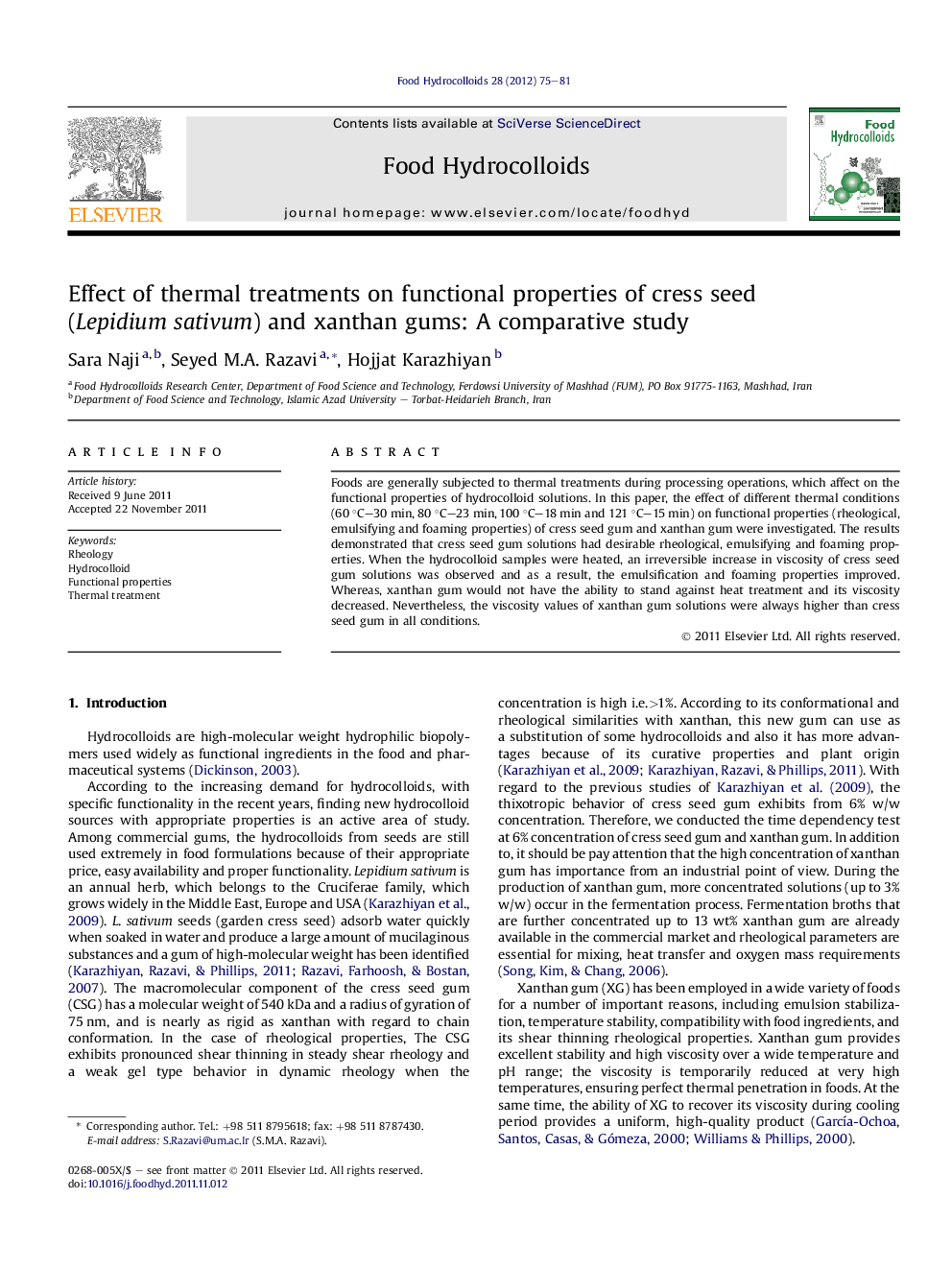| Article ID | Journal | Published Year | Pages | File Type |
|---|---|---|---|---|
| 604271 | Food Hydrocolloids | 2012 | 7 Pages |
Foods are generally subjected to thermal treatments during processing operations, which affect on the functional properties of hydrocolloid solutions. In this paper, the effect of different thermal conditions (60 °C–30 min, 80 °C–23 min, 100 °C–18 min and 121 °C–15 min) on functional properties (rheological, emulsifying and foaming properties) of cress seed gum and xanthan gum were investigated. The results demonstrated that cress seed gum solutions had desirable rheological, emulsifying and foaming properties. When the hydrocolloid samples were heated, an irreversible increase in viscosity of cress seed gum solutions was observed and as a result, the emulsification and foaming properties improved. Whereas, xanthan gum would not have the ability to stand against heat treatment and its viscosity decreased. Nevertheless, the viscosity values of xanthan gum solutions were always higher than cress seed gum in all conditions.
Graphical abstractEffect of thermal properties on the foaming properties of selected hydrocolloids (C: cress seed gum and X: xanthan gum).Figure optionsDownload full-size imageDownload as PowerPoint slideHighlights► The functional properties of selected hydrocolloids affected by thermal processes. ► Heating treatments improved functional properties of cress seed gum (CSG) irreversibly. ► The viscosity of xanthan gum decreased after thermal treatments. ► Xanthan gum had higher viscosity than cress seed gum in all conditions. ► CSG with special functional properties could be used as a good choice for heat-treated foods.
